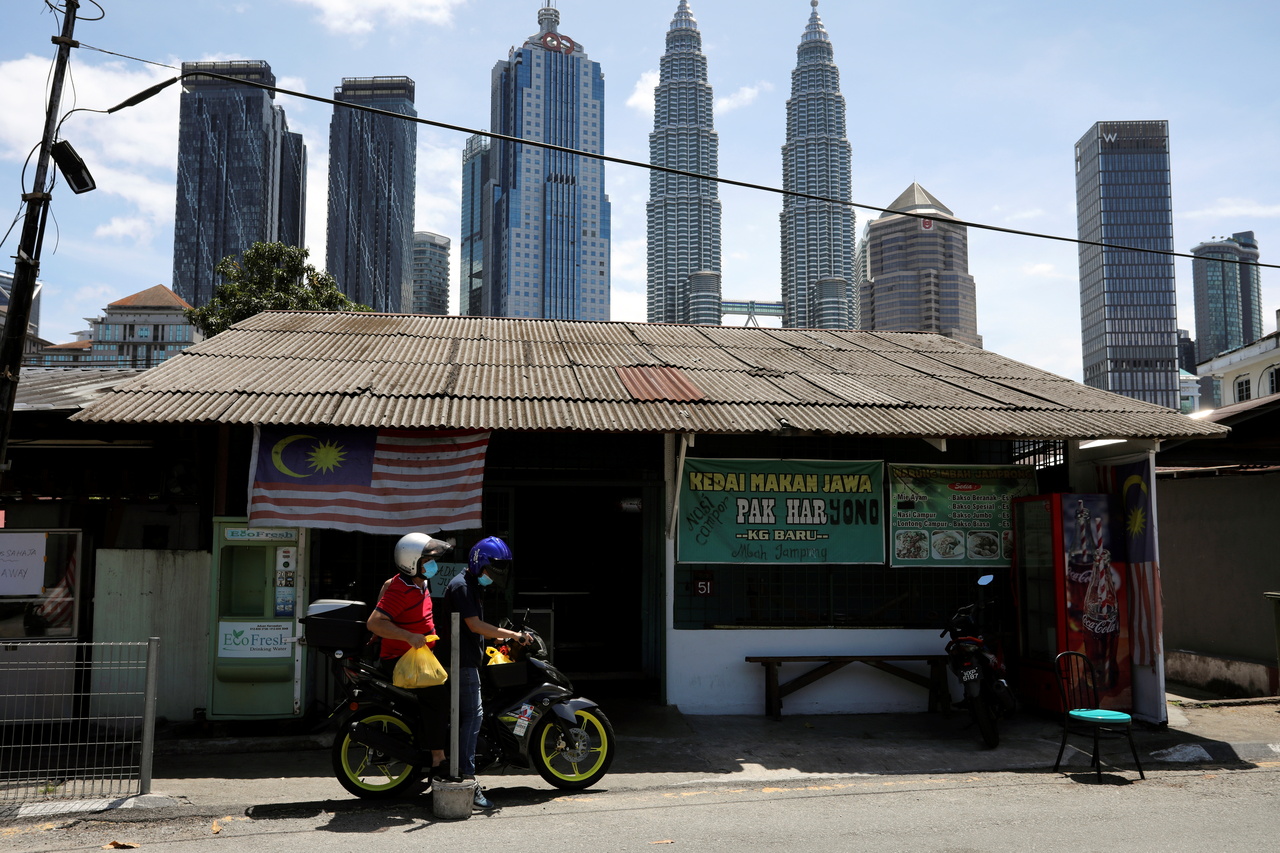Interstate travel for Hari Raya amid Covid-19 depends on 6 factors, says Malaysia's Health Ministry
Sign up now: Get insights on the biggest stories in Malaysia

Based on previous trends of Covid-19 cases in Malaysia, there were SOP violations when interstate travel was allowed, says one health expert.
PHOTO: REUTERS
Follow topic:
PETALING JAYA (THE STAR/ASIA NEWS NETWORK) - Travelling back to home towns for the Hari Raya break may be a reality if Malaysians continue to strictly adhere to the standard operating procedure (SOP) and risk assessments on the Covid-19 situation in the country, said Malaysia's Ministry of Health (MOH).
There are six factors to be considered in the risk assessment with regard to interstate travel. They are the current daily cases, infectivity rate, capacity at hospitals' intensive care units, current Covid-19 situation involving infected health workers, and the overall screening tests.
"The MOH will review all data and facts before advising or recommending to the technical committee for decisions at the special meeting of the National Security Council," it said, noting that the risk assessments were made from time to time.
In a Facebook post on Sunday (March 21), the ministry said that new cases were showing "a downward trend even though (they are) inconsistent".
"However, it is still too early to tell," it added.
Health experts believe that there are other aspects that should be taken into consideration before allowing people to return to their home towns, a trend known as "balik kampung".
"The Health Ministry's assessment did not specify the reference rate for daily cases or infectivity rate," said Associate Professor Malina Osman, a medical epidemiologist.
From a public health's point of view, an acceptable rate may mean fewer cases of active and new daily cases that are within one to two digits and consistent across 14 consecutive days.
Based on previous trends of Covid-19 cases in the country, she said the country had seen SOP violations when interstate travel was allowed, which led to a spike in infections in December 2020.
"Risk assessment may be helpful to open the gate for economic and tourism reasons but not for balik kampung," she said.
With the availability of vaccines, Prof Malina proposed that the government wait for the second phase of the vaccination programme involving vulnerable groups to be initiated first before considering allowing nationwide interstate travel.
"Based on recent data from the Health Ministry, some 69 per cent of deaths related to Covid-19 infections involved those who are 60 years old, and 89 per cent of them have underlying health conditions.
"If most of our vulnerable group have received vaccines and cases reduce to one to two digits daily, then interstate travel can be allowed. Although personally, I prefer this to be done one to two weeks after Hari Raya," she said.
Prof Malina urged caution as the pandemic was still a threat.
"All decisions should be considered thoroughly to avoid any possibility of a fourth wave," she said.
Referring to a statement by Health Ministry director-general Noor Hisham Abdullah that interstate travel would only be allowed once 70 per cent to 80 per cent of the population is vaccinated, Universiti Malaya epidemiologist Awang Bulgiba Awang Mahmud said such a decision should be driven by evidence and not targets.
"If we want to use evidence as the basis, then evidence of increasing immunity would be needed, like a decline in new infections as vaccination is rolled out across the country.
"If we were to rely on evidence of vaccinations working from elsewhere, evidence of a decline in new infections in the elderly can already be seen in the United Kingdom after many in the older age groups have been vaccinated with a single dose," Prof Awang Bulgiba said, noting that about 50 per cent of British adults had received at least one dose of the vaccine.
He expressed his concern on the reduced testing of Covid-19 contacts by the ministry since January.
"This means we do not really know the real extent of infections in the community," he said.
Public health expert Zainal Ariffin Omar said interstate travel could be allowed in the near future unless Covid-19 transmission came from community clusters or community events.
"The community and the authorities need to make informed decisions, as well as prompt actions, based on the current situation," he said.

